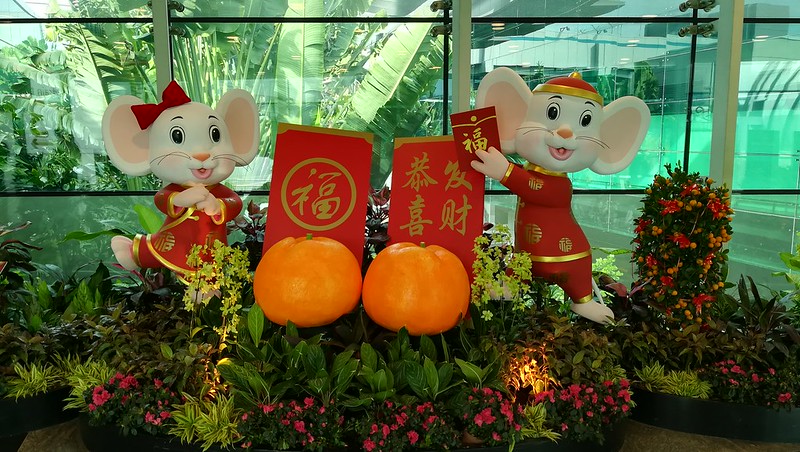Top 20 Chinese Blog Posts of 2020 (Part One) Posted by sasha on Dec 16, 2020 in Culture, News, Vocabulary
Most of us will be happy to say goodbye to 2020 in a few weeks. The year was dominated by the coronavirus (新冠病毒 xīn guān bìng dú), which taught us terms like social distancing (社交隔离 shè jiāo gé lí). Even in China where it seemed like they had finally gotten the virus under control, new cases were recently reported in the city of Chengdu. At least there are positive developments in terms of a vaccine (疫苗 yì miáo), because we’re all suffering from pandemic fatigue. Not surprisingly, COVID-19 was an important topic here on the blog this year. Thankfully, it’s not all we talked about! We had popular posts this year about Chinese holidays, food, idioms, and much more. I usually count down the Top 10 posts at the end of each year, but this year we’re going big with the Top 20 Chinese Blog Posts of 2020! In Part One, we’ll look at the ten best posts from the first half of the year.
It’s hard to talk about current events when you don’t know the necessary vocabulary. That’s why Ayana wrote this post to teach some COVID-19 vocabulary. You’ll learn vocabulary such as World Health Organization (世卫组织 shì wèi zǔ zhī) and symptom (症状 zhèng zhuàng) along with example sentences to help you understand them better.
The Spring Festival is far and away the most important holiday in China. It’s a time to visit family, eat an absurd amount of food, light off boxes upon boxes of fireworks, and gather round the TV set for the annual CCTV Spring Festival Gala. Known as Chun Wan” (春晚 – chūn wǎn), this program is watched by a billion people. This post talks all about the show and what kind of sketches and performances it features.
2020 was a Year of the Rat (鼠年 shǔ nián), which actually starts a new cycle of the Chinese zodiac calendar. If you’re not familiar with the order of the zodiac, you should definitely read this post. I also go into detail about characteristics of people born in the Year of the Rat and their relationships and careers. I also mention some famous folks who were born in a Year of the Rat.
This post by Ayana talks about the phrase 最美逆行者 (zuì měi nì xíng zhě), which has been widely used this year to describe the frontline workers battling the pandemic. It’s a bit tricky to translate this directly, but she explains the background to this phrase and its relevance in 20020. There’s even a new CCTV show titled “最美逆行者,” the first-ever anti-epidemic TV show in the country.
The Rising Demand for Masks in China
Due to the coronavirus, there was a massive increase in the demand for protective masks (口罩 kǒu zhào) both in China and around the globe. Even though China is the largest manufacturer and exporter of these masks, they faced a shortage earlier this year. Ayana goes into detail about protective masks while teaching lots of useful vocabulary in this post.
As the location of the first reported case of the coronavirus, the Chinese city of Wuhan (武汉 wǔ hàn) has had a rough year, to say the least. The city of 11 million was under lockdown for nearly two months as the pandemic wreaked havoc. Trapped in their homes, the residents of Wuhan took to yelling “武汉加油!” (wǔ hàn jiā yóu), or “Go Wuhan!” Western media picked it up and translated it as “Be Strong Wuhan,” which resulted in several touching moments. Read all about it in this post which sheds a little light on the darkness of this year!
China’s Epidemic Heroes Returned Home
After several very difficult months, the situation in Wuhan began to improve. On March 16, the city reported only one new case of COVID-19. The next day, they began to withdraw the extra medical personnel (医护人员 yī hù rén yuán) that had been rushed to the city to help. This post from Ayana goes into detail about this important event in 2020.
A Guide to Asking Questions in Chinese
A huge step for a beginner of any language is learning how to ask questions. In this post I teach you all of the question words in Chinese and also provide several examples of each in use. You can worry about understanding the answers later!
A few days before Father’s Day last year, Chinese musician Li Kaichou (李凯稠 Lǐ kǎichóu) released a song called “Listen to Me Thank You” (听我说谢谢你 tīng wǒ shuō xiè xiè nǐ). A year later, the song became an anthem for thanking the frontline workers battling the virus. Learn about the song and read the lyrics in this post! You can also follow along with this video KTV-style:
With travel basically put on hold this year, I decided to take our readers on a virtual tour of China (中国虚拟之旅 zhōng guó xū nǐ zhī lǚ). Explore the bustling capital of Beijing, historic places like the Terracotta Warriors of Xi’an, the natural beauty of the Longji rice terraces, and more in this post full of photos and videos.
Thanks to all our readers for all the clicks, shares, and comments. We really appreciate your continued support! Before I share the rest of the Top 20 posts of 2020, I’d like to know what your favorite posts or topics were this year? Leave a comment below and let us know!

Build vocabulary, practice pronunciation, and more with Transparent Language Online. Available anytime, anywhere, on any device.








Leave a comment: